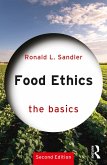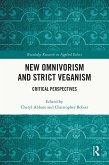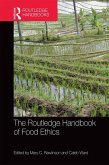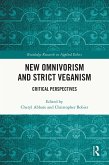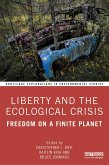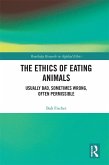Dieser Download kann aus rechtlichen Gründen nur mit Rechnungsadresse in A, B, BG, CY, CZ, D, DK, EW, E, FIN, F, GR, HR, H, IRL, I, LT, L, LR, M, NL, PL, P, R, S, SLO, SK ausgeliefert werden.
"The book provides a balanced perspective for each contemporary issue as well as arguments supporting and opposing debatable benefits and risks of food production and consumption issues. The philosophical perspectives are clearly written, the technical details are jargon free, and the science is accurate... A useful resource for public policy and agricultural libraries...Summing Up: Recommended." - B. R. Shmaefsky, CHOICE
"Sandler makes a good job introducing the topic of food ethics to the reader, offering a broad range of information and describing key underlying ethical enquiries and particular views on each of the topics presented. (...) Reading this book was helpful in the sense that it provided insight into a topic that has not been widely studied or discussed. Thus, it can be a valuable introduction to food ethics, while encouraging the reader to explore more about this project." - Natalie Herdoiza Castro, Utrecht University, The Netherlands



